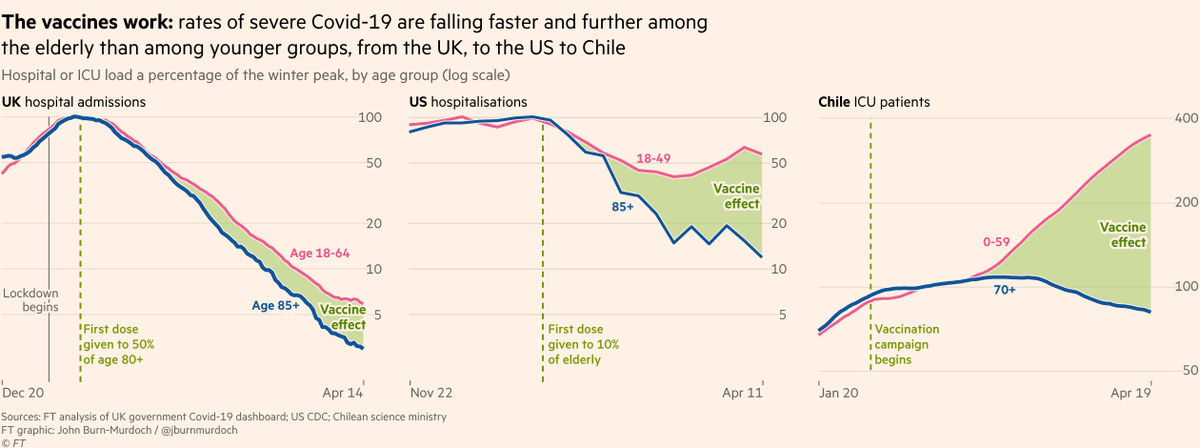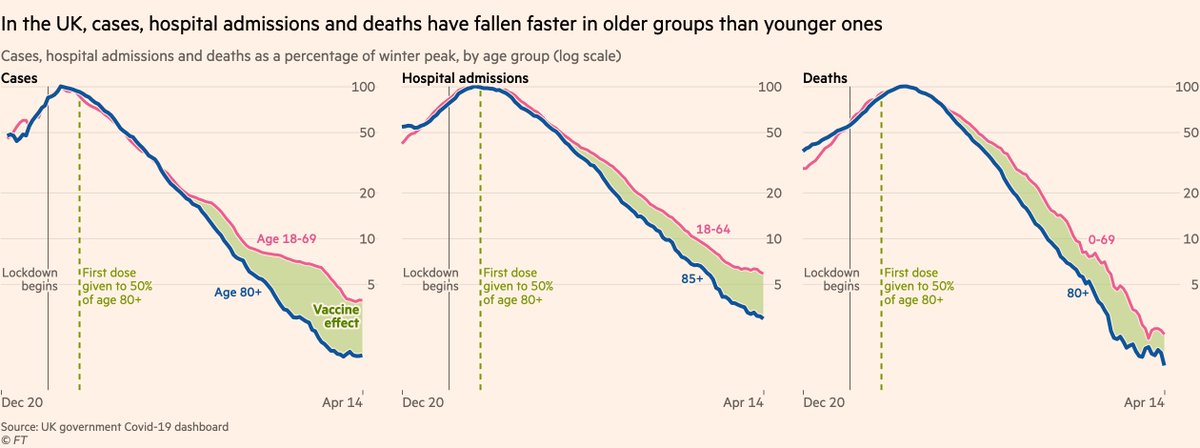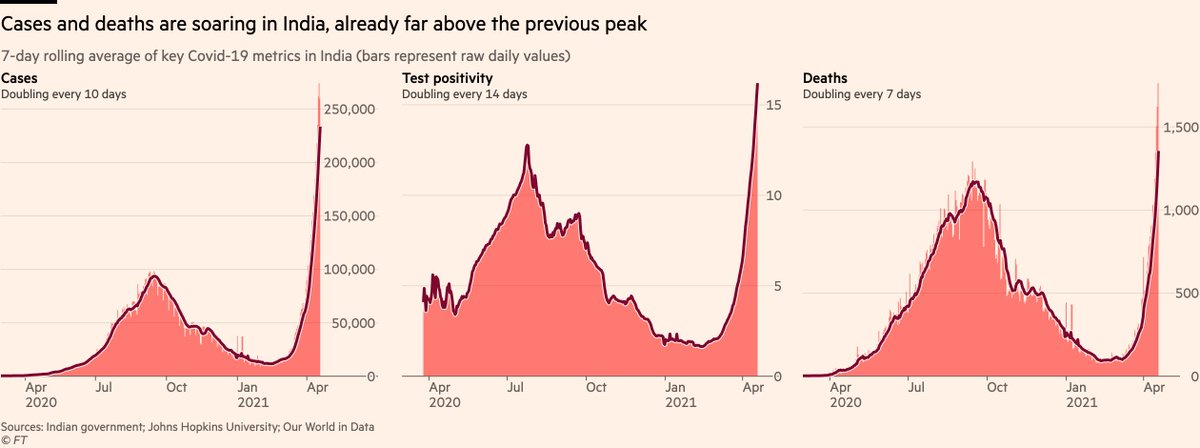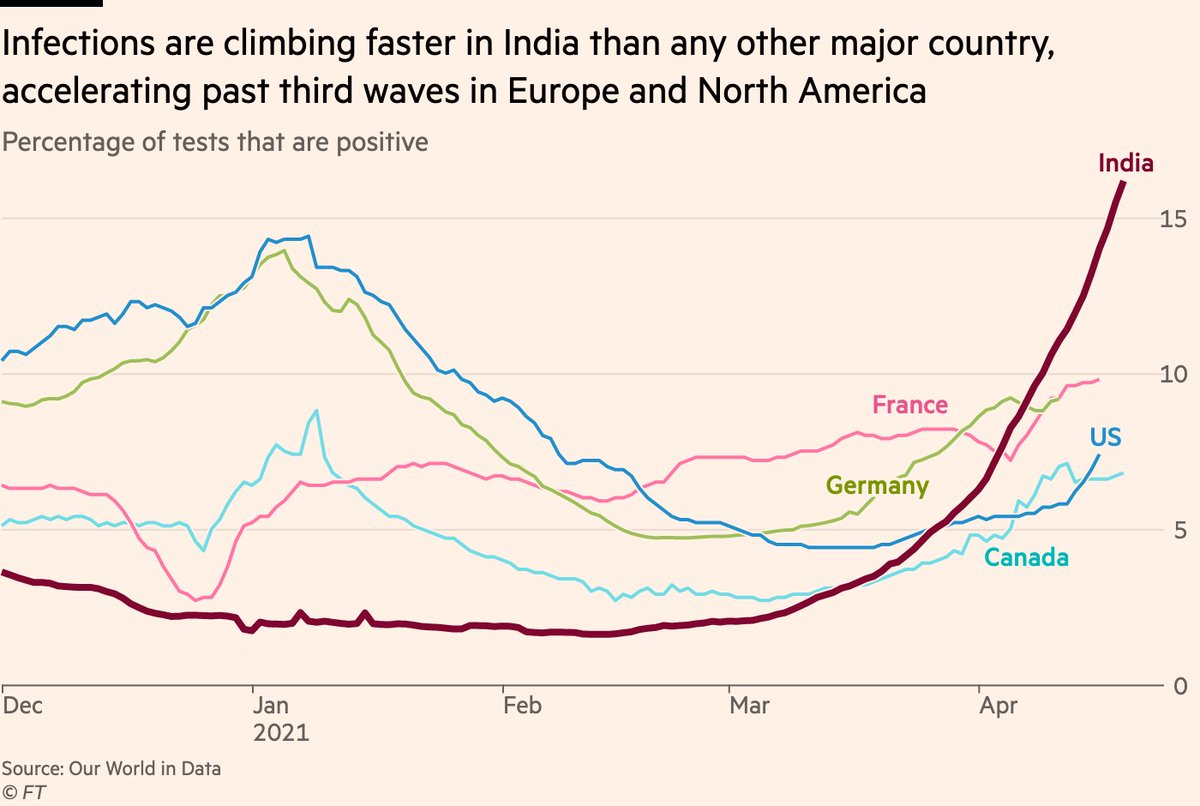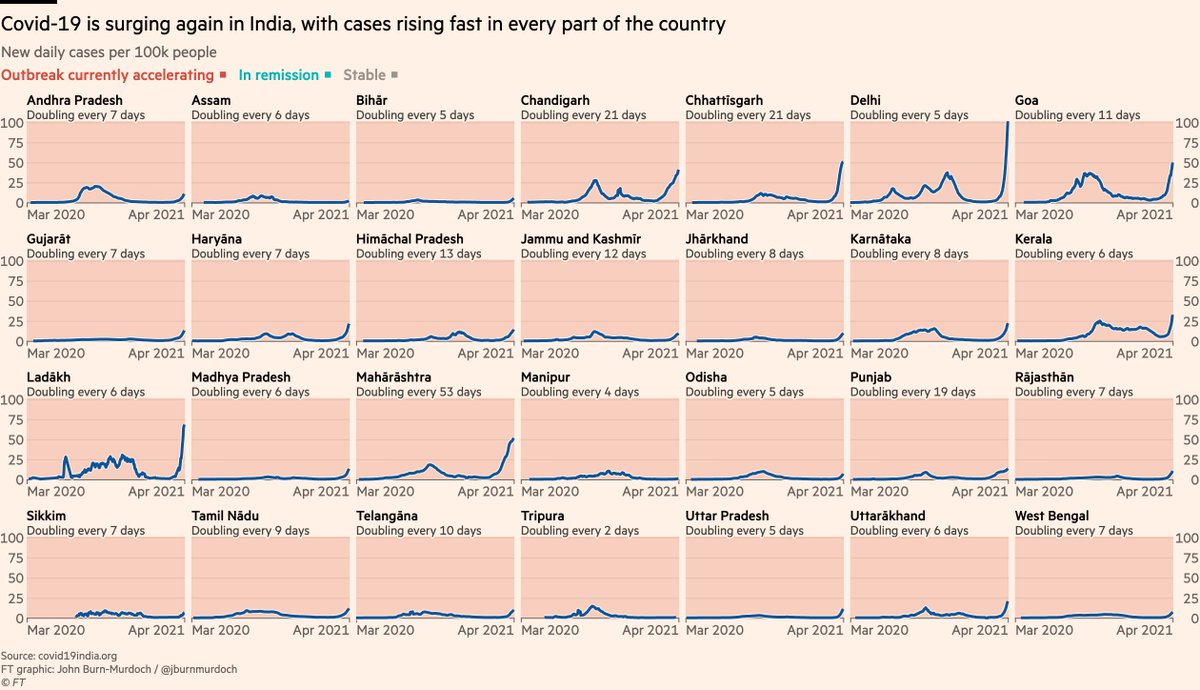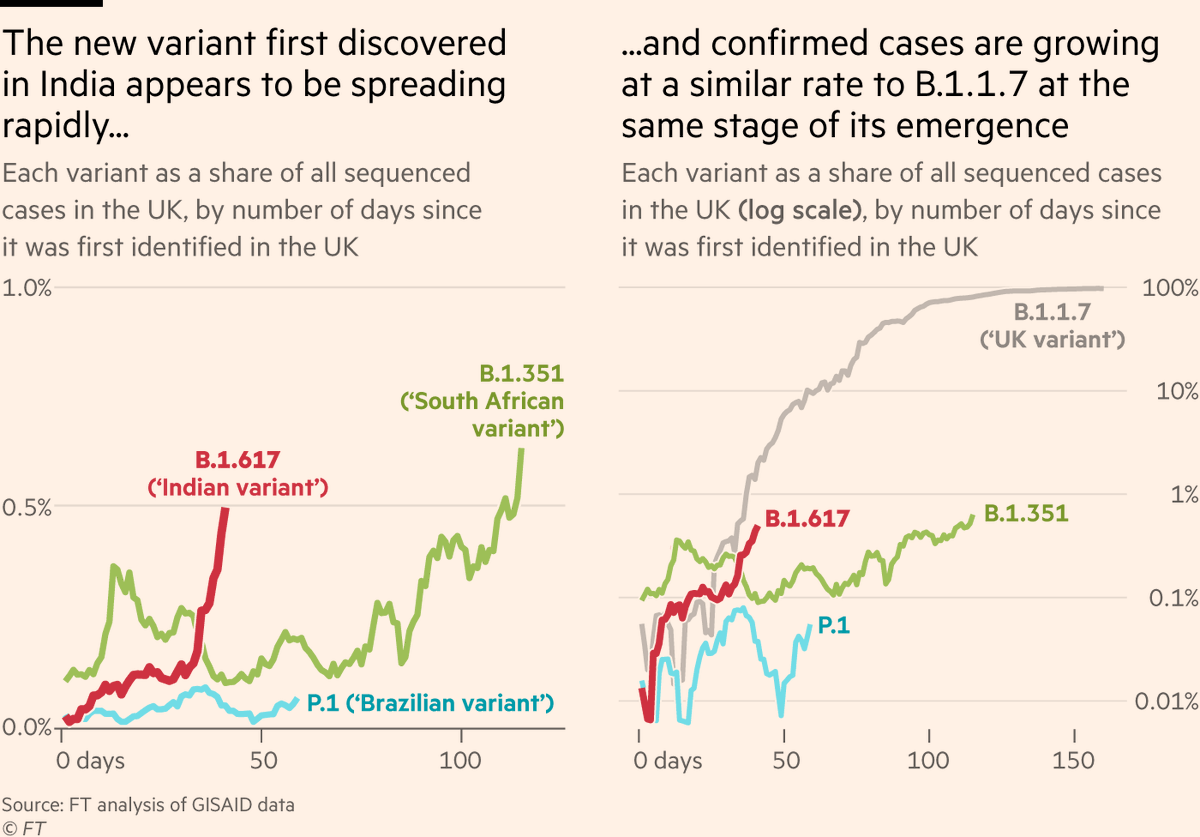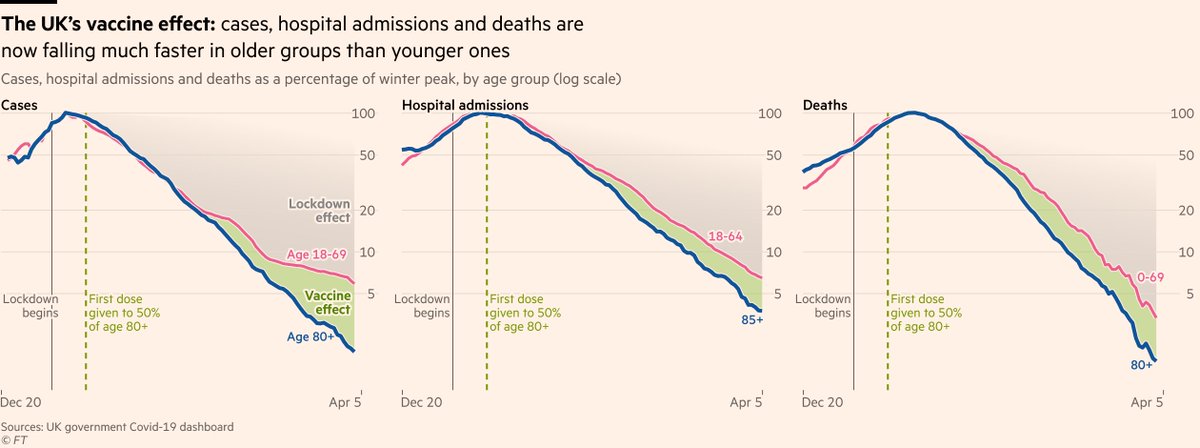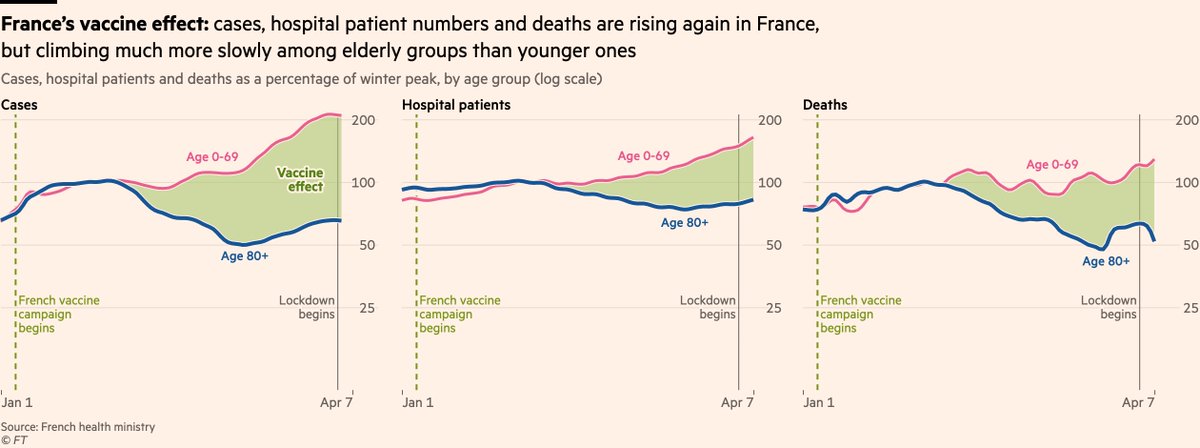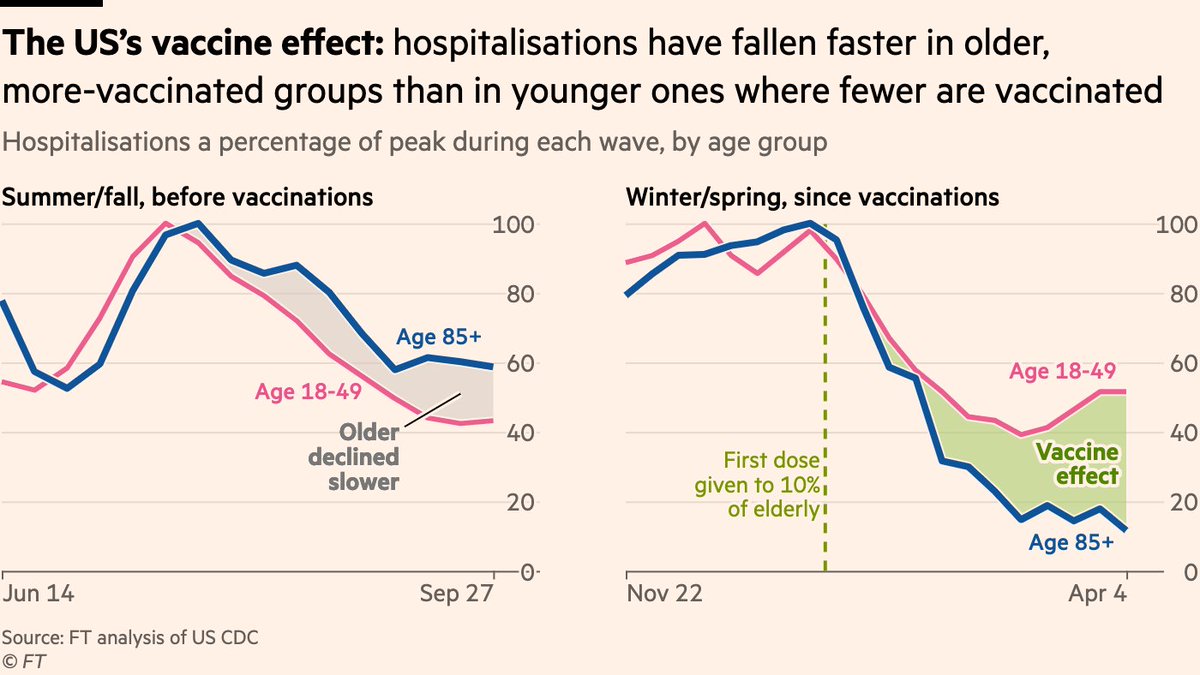
Brief thread on vaccines vs variants (vaccines are winning 💉💪):
[Some] people keep pointing to rising cases in places like Chile and Canada as evidence that the vaccines aren’t working.
That’s completely contradicted by the data coming out of those countries
[Some] people keep pointing to rising cases in places like Chile and Canada as evidence that the vaccines aren’t working.
That’s completely contradicted by the data coming out of those countries
First, an update from Chile, where cases, ICU admissions and deaths are now all falling among the elderly, who were prioritised for vaccination (while still rising or stable among younger, less-vaccinated groups). 
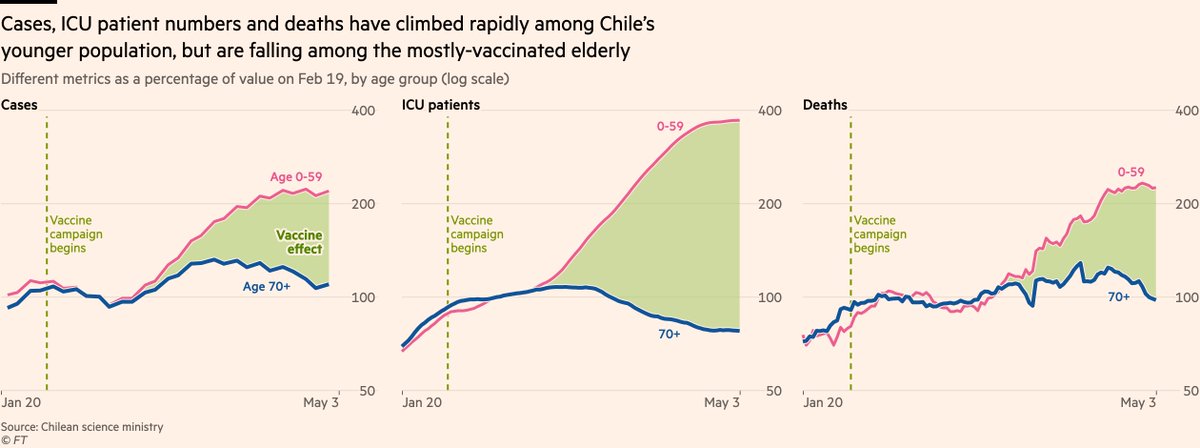
Chile is one of the clearest examples worldwide:
• Rates were on exactly the same path among young & old before vaccines
• They then diverged, with the elderly (💉) faring better
• If deaths among 70+ had stayed on the same path as the 0-59s, 1,500 more people would have died
• Rates were on exactly the same path among young & old before vaccines
• They then diverged, with the elderly (💉) faring better
• If deaths among 70+ had stayed on the same path as the 0-59s, 1,500 more people would have died
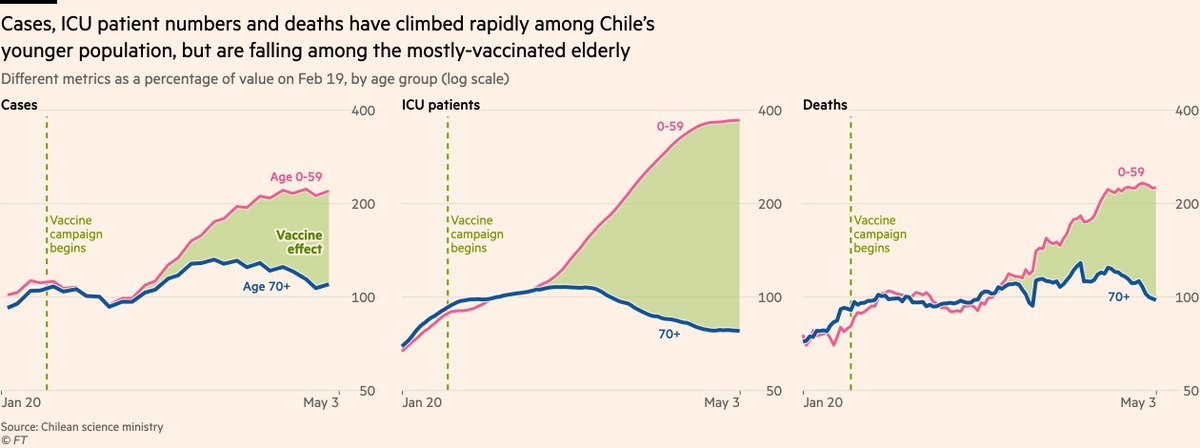
Chile’s resurgence has been bad. It’s horrible to see so many young people in ICUs.
But vaccines have already saved 1,500 lives there. That’s the equivalent to 5,000 in UK or 26,000 in US.
Chile has had a bad resurgence, but vaccines have prevented it being much worse.
But vaccines have already saved 1,500 lives there. That’s the equivalent to 5,000 in UK or 26,000 in US.
Chile has had a bad resurgence, but vaccines have prevented it being much worse.
Some have also pointed to Canada and asked how it could be seeing surging cases, ICU admissions and deaths despite 1/3 of the population having had one or more doses.
Again, you have to break things down by age:
Again, you have to break things down by age:
Canada’s third wave has been much more muted among the elderly, who were prioritised for vaccination.
Cases and ICU admissions rose much more slowly, and began falling earlier. Deaths have also climbed much slower among the elderly.
Cases and ICU admissions rose much more slowly, and began falling earlier. Deaths have also climbed much slower among the elderly.
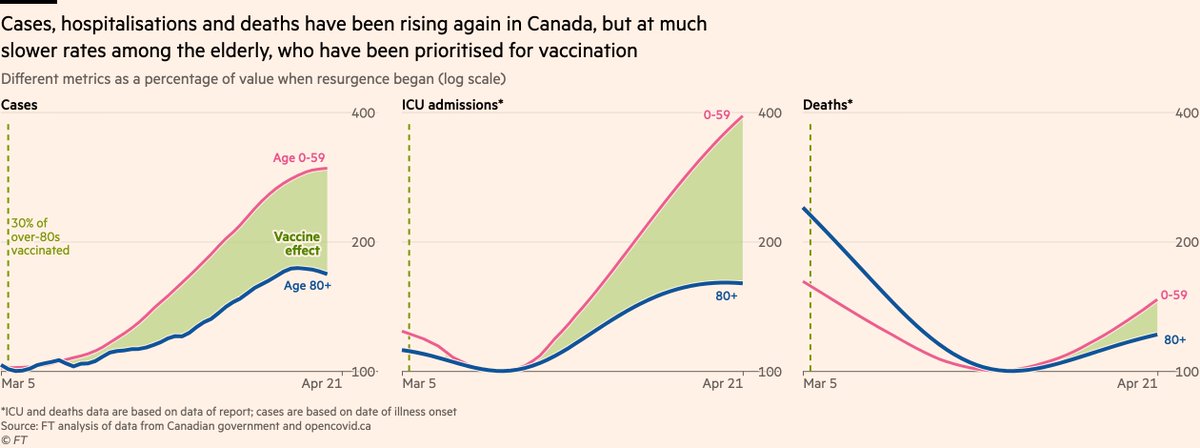
To reiterate: do not point to a resurgence at the aggregate level and say "see, vaccines aren’t working against new variants".
Dig beneath the surface, and you’ll see vaccines are winning the battle against variants, preventing things from being much worse.
Dig beneath the surface, and you’ll see vaccines are winning the battle against variants, preventing things from being much worse.
If Chile and Canada were even further along their vaccination rollouts, the recent resurgences would have been even more muted than they already are. Thousands more lives would have been saved.
But the vaccines that *have* been administered are working well.
But the vaccines that *have* been administered are working well.
We also have new data from @GuptaR_lab, showing that the mutations in the Indian variant are no more able to escape antibodies than either the Brazilian or South African mutations, and we already know the vaccines are working against those two
https://twitter.com/GuptaR_lab/status/1388422662595219459
And in one recent case, a scare-story about immune-escape from the Indian variant turned out to be precisely the opposite: it strongly suggests the vaccines are working against this variant, too
https://twitter.com/CT_Bergstrom/status/1387941641395179524
Over recent weeks the UK has reopened substantially. Schools and shops are open, and outdoor eating and drinking have returned.
Yet in my "Covid endgame" chart, that rise in mixing hasn’t pushed us back into the "outbreak growing" quadrant. Cases continue to fall.
Yet in my "Covid endgame" chart, that rise in mixing hasn’t pushed us back into the "outbreak growing" quadrant. Cases continue to fall.
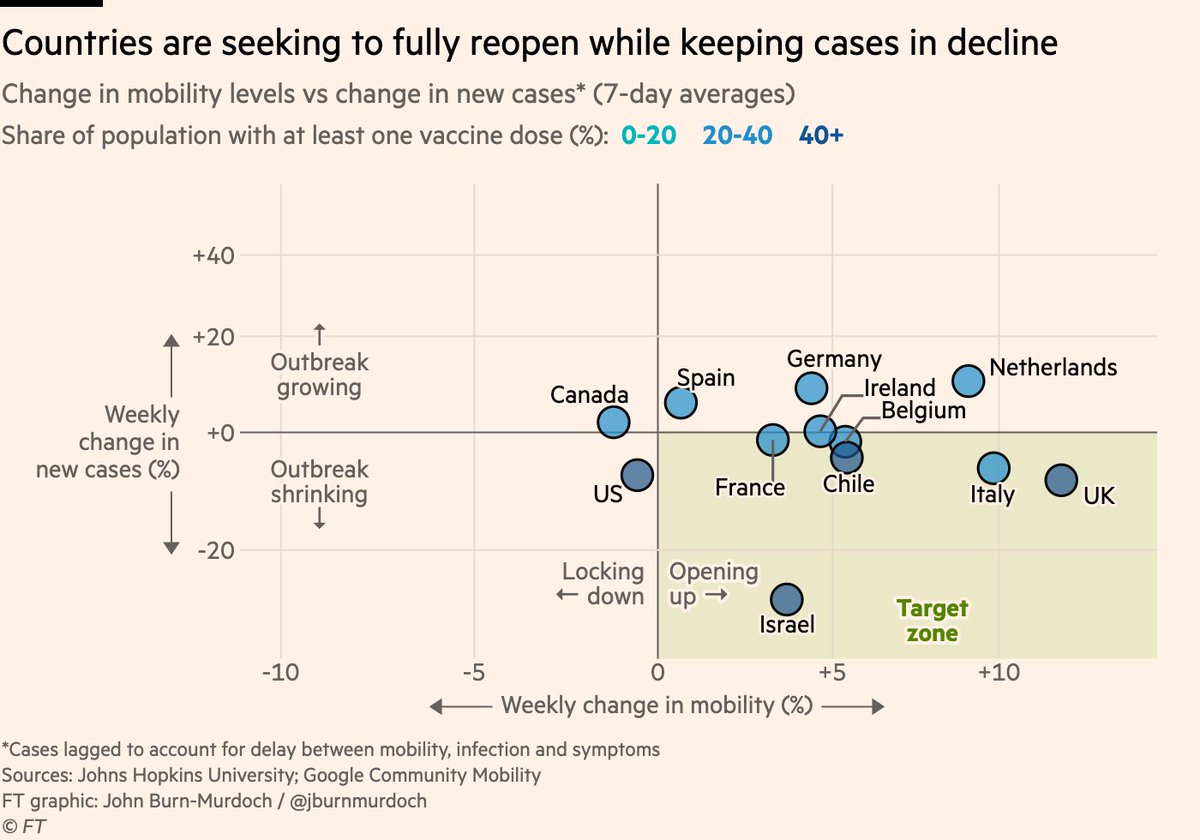
Of course, things can change. We only know what we know today.
But there is no evidence yet that we should be overly worried about the positive, vaccine-driven trends in places like Israel and the UK being reversed.
But there is no evidence yet that we should be overly worried about the positive, vaccine-driven trends in places like Israel and the UK being reversed.
I understand the cautious frame of mind that says "but cases of new variants in the UK are going up, we can’t rest yet".
But:
• These numbers remain tiny
• The "surges" in P.1 and B.1.351 failed to materialise
• We have no reason to believe these variants escape the vaccines
But:
• These numbers remain tiny
• The "surges" in P.1 and B.1.351 failed to materialise
• We have no reason to believe these variants escape the vaccines
So my advice would be: keep *watching*, but don’t keep *worrying*.
Every piece of evidence we have says the vaccines will get us out of this, and it’s just a matter of getting them to as many people as possible, as quickly as possible.
Every piece of evidence we have says the vaccines will get us out of this, and it’s just a matter of getting them to as many people as possible, as quickly as possible.
Further reading:
• The FT’s vaccine tracker (free to read) ig.ft.com/coronavirus-va…
• The situation in Canada ft.com/content/4b6f52…
• The vaccines are working ft.com/content/d71729…
• The FT’s vaccine tracker (free to read) ig.ft.com/coronavirus-va…
• The situation in Canada ft.com/content/4b6f52…
• The vaccines are working ft.com/content/d71729…
• • •
Missing some Tweet in this thread? You can try to
force a refresh




